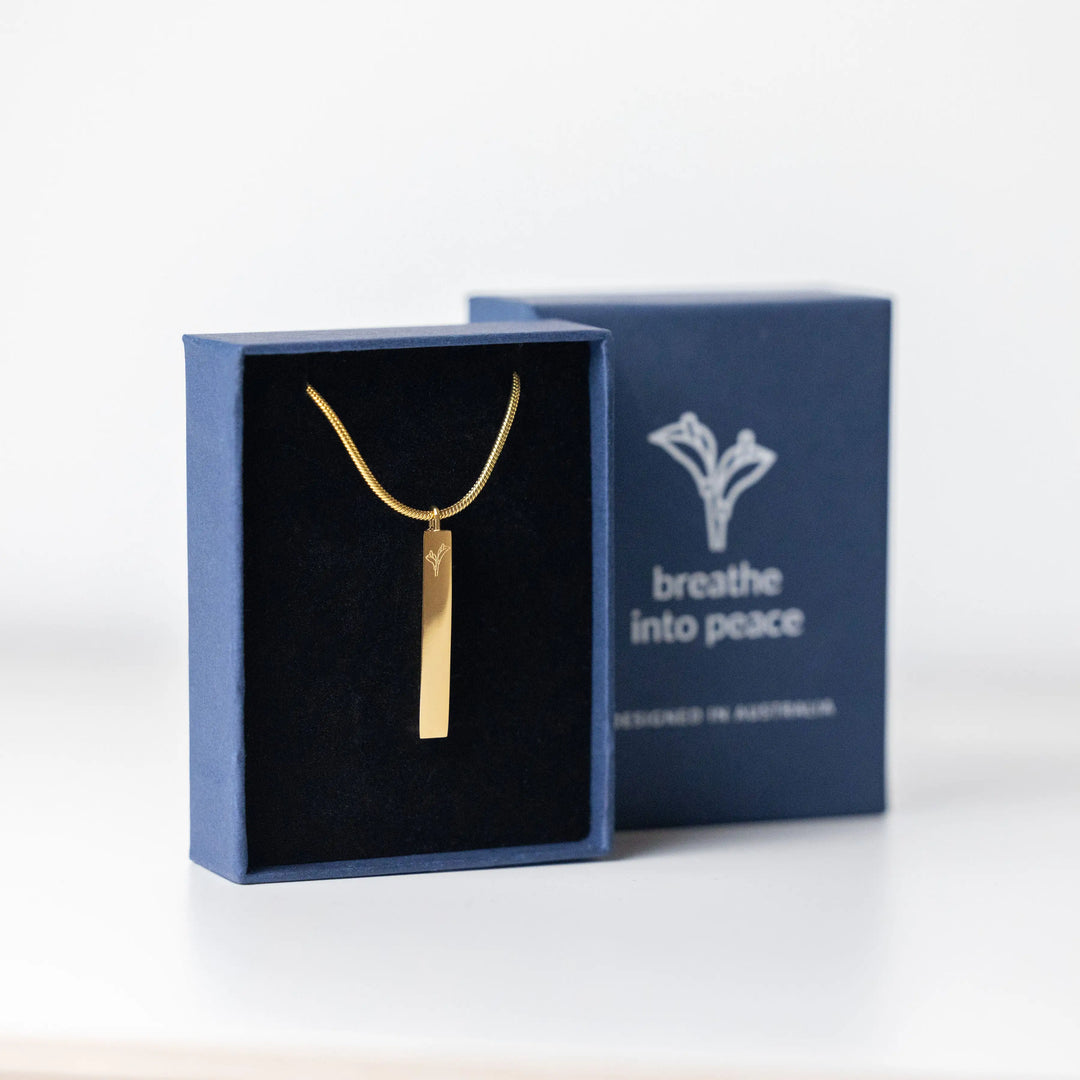How to Journal for Anxiety: 5 Steps to Build the Habit
If you’re wondering how to journal for anxiety and if it's worth it, this is a great place to start.
Journaling is an effective way to help people with mental health concerns track and process their emotions and thoughts. Writing down feelings and experiences can help you determine triggers, identify negative thought patterns, and develop healthy coping mechanisms.
But before you jump right into journaling, take a look at the ways it can help you, so you can decide if it’s something you want to have in your life. Some of them might be a surprise to you. Here are a few reasons why you should start journaling for anxiety and mental wellness.
Benefits
1. Provides Healthy Anxiety Relief
Multiple studies show that putting your negative thoughts and feelings into words can alleviate the symptoms of anxiety and other mental distress. As you write, you become more focused on writing, allowing your brain to cool down.
When we are experiencing anxiety, it feels like our mind is on overdrive, and we’re experiencing everything all at once. That’s because our amygdala, the part of our brain responsible for danger warnings, is hyperactive. The good news is, according to one study, writing down our experiences and emotions can relax the amygdala.
2. Free
Or, at the very least, it’s low-cost. Therapy can be pricey, and the recommended price set by the Australian Psychological Society for private practices is around AU$300 per hour. Keeping a journal for mental wellness only needs a notebook and a pen, and we can get those practically anywhere at a comfortable price.
However, we still strongly advise getting professional help.
3. Improve physical health
Journaling can also have a positive impact on your physical health. Some research shows that expressive writing improves immunity, minimises the symptoms of asthma and rheumatoid arthritis symptoms, and accelerates the healing of physical wounds.
Not only will you experience the catharsis of letting your emotions flow by writing them, but your body undergoes a positive response. See, learning how to journal for anxiety does wonders!
4. Track Your Journey
Healing doesn’t always happen overnight, and often, there are bumps in the road to total recovery. During these times, you might feel that you’re not going anywhere and back to square one. However, when you write down your experiences, you can see how much progress you’re making.
As you read your journal, you might identify your triggers and how you managed them. You’ll learn where to draw boundaries and what you should work on. Documenting your joyous and bitter experiences can help you make healthier and better-informed decisions as you move forward.
5. Safe space
Your journal for anxiety and depression is your safe space. You can write down whatever turbulent thoughts and emotions without being ridiculed, shamed, gaslit, or punished. Here, you can go down to the nitty-gritty of your day and thought processes. It can be the place where you can be yourself completely.
6. Deepens self-awareness
Sometimes, your perception of yourself and the world can be distorted when you’re struggling with mental health issues. You might even think you don’t know who you are especially when you’re going through a tough season. When you record your emotional and mental processes and review them, you get a clearer understanding of who you are.
It might not always be pretty, but you gain a deeper understanding and clearer idea of who you are and, more importantly, how you can become the person you want to be. Journaling for mental health can help you become more accepting of yourself and be kinder to others.
7. Improve Your Productivity
Keeping a journal helps you gather your thoughts and give you mental clarity. As your mind cools down, you focus more on what you need to do. Reflecting on previous experience gives you insight into how to handle situations effectively and more healthily.
As you continue writing, you might create a to-do list and start goal-setting. Regular journaling can help you stay on track and document your progress. It can also remind you that you are growing even when you feel like you are stagnating in your current situation. Records of previous victories and solutions from challenging situations can encourage you to keep moving forward.
Get Into Writing
Journaling for anxiety and depression relief can be an incredibly powerful tool for personal growth and healing, but it can also be challenging to get started. Here are some tips to help you make the most of your journaling experience and make it a comfortable and effective practice:
Find the time and place where you have the comfort and privacy to express yourself. It could be just before sleeping so you can rest without carrying the day’s heavy load. Perhaps you’re more comfortable to write in the middle of the day when everything is still happening. Just do what works best for you.
Regular journaling for anxiety and depression helps you stay grounded, especially in challenging times. It also gives you a time when you can be there for yourself and to honor your emotions. You don’t have to spend several hours writing unless you want to. A few minutes might suffice to help you establish a routine and create a safe environment.
Remember, you are writing for yourself. Don’t worry about grammar and spelling; what matters is you vent your emotions. If you already have a set time for writing but feel like expressing your thoughts in written words at a different time, go ahead.
Some prefer pen and paper, while others are more comfortable typing their thoughts away. Go for whatever helps you express yourself freely, clearly, and safely.
Write whatever feels right and what makes you feel secure and comfortable. It’s alright to go off tangent. Be as descriptive as possible. Write down the taste, the texture, the volume, and how it made you feel. This helps you become more present and connected with the world around you.
Additionally, noting sensations and your responses helps you identify potential and unexpected triggers. Knowing this helps you prepare and protect yourself from situations that may overwhelm you.
Take the time to reflect on previous experiences and your thought processes. You’ll see your growth and also what may be hindering you from becoming who you want to be. When you see damaging habits or unhealthy thinking patterns, you can think about ways to build healthy habits and coping mechanisms.
As you pore through your journals, you’ll also find the things that make you feel happier, more grateful, and at peace. When you’re struggling with mental health issues, you might think that nothing makes you feel happy anymore. But when you take note of your daily experiences, you’ll find things that make your life more beautiful and hopeful.
However, adding a trigger warning when you write your entry would also be wise. Some situations might be triggering, so keep that in mind when you re-read your journal. If you see a trigger warning on a certain entry, do what’s best for your peace of mind. It’s okay not to read them if you’re not yet ready. You can read other notes that are also helpful.
Also, remember to be kind and gracious to yourself when you reflect on your experiences.
It’s your journal, a sanctuary of your innermost thoughts and feelings. It’s an expression of who you are, so you can let your creativity flow. You can even write a poem or a song instead of a blow-by-blow account.
Some people love to draw their journals like comic books, others enjoy a colorful journal, while some prefer to write everything plainly and directly. All are valid.
What to write about
There are a lot of topics you can cover when you start journaling. As you find the rhythm of writing and what works best for you, you may start making a theme or topic of your own. But if you’re still starting, you can choose any of these prompts to get going:
- Where do you feel safe and comfortable? (It can be a place or a situation)
- What did you dream about last night? What made you happy or anxious about it?
- Write a letter to your past self
- Write a letter to your future self
- What happened today
- Write your affirmations and intentions for the day
- What are the things that pleasantly surprised you?
- What or who are you grateful for?
- What are some things that worked out for you?
- How can you be kinder to yourself?
- Is there anything you’d like to learn?
- What are some lessons you’ve learned about today or in the previous days?
- What is something about yourself that you want to be more accepting?
- What are the ways you can take accountability and be gracious to yourself?
Perhaps as you read those prompts, you also found some ideas on what to write about. As you continue to journal, you may find yourself becoming more self-aware and better equipped to manage your anxiety. So, don't hesitate to learn how to journal for anxiety today and take the first step towards inner healing and peace.





Leave a comment